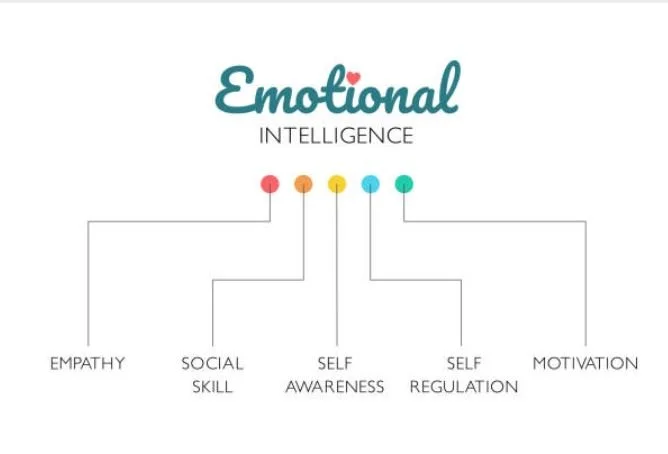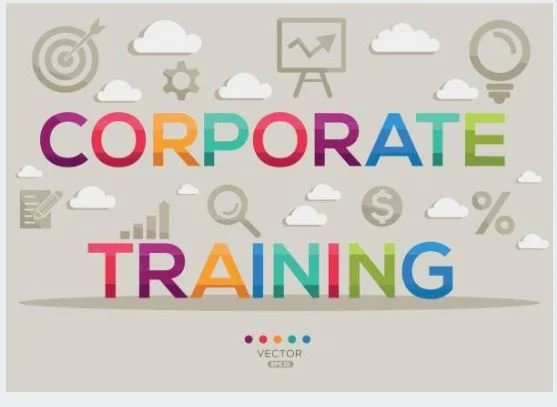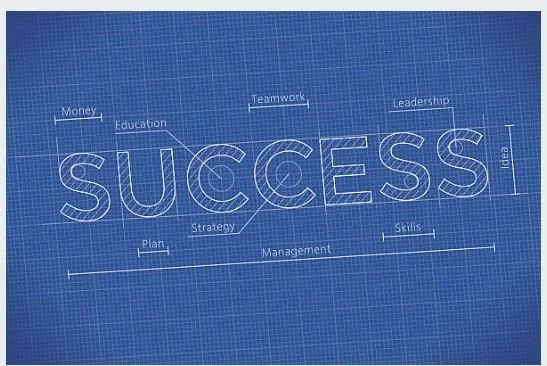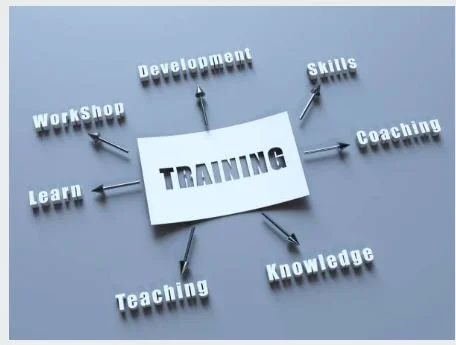
Empowering Leaders Through Coaching: Why Every Manager Needs a Mentor.
The Impact of Coaching on Leadership
Studies have consistently demonstrated the powerful impact coaching has on leadership development:
According to the International Coaching Federation (ICF), organizations that invest in coaching see a 70% improvement in individual performance, 50% increase in team performance, and a 48% boost in organizational performance.
Research by Harvard Business Review found that 71% of Fortune 500 companies offer executive coaching as a standard leadership development practice, demonstrating its proven value.
A study by Gallup revealed that managers account for 70% of the variance in employee engagement, emphasizing the need for well-trained and emotionally intelligent leaders.

Mentorship vs. Coaching: How Combining Both Can Elevate Workplace Development
Mentorship vs. Coaching: How Combining Both Can Elevate Workplace Development
In today’s competitive business landscape, organizations are constantly seeking ways to enhance employee development and improve performance. While mentorship and coaching are often seen as separate strategies, combining both can significantly elevate workplace development, fostering stronger leaders, engaged employees, and a thriving organizational culture.
Understanding Mentorship and Coaching
While mentorship and coaching share common goals of growth and development, they differ in approach, structure, and outcomes. Understanding these differences is key to leveraging both effectively.

Creating a Coaching Culture: The Key to Organizational Success
The current business landscape, demands organizations to continuously adapt, innovate, and develop their people. One of the most effective ways to achieve this is by embedding coaching principles across all levels of the organization. Creating a coaching culture not only drives performance but also nurtures a supportive environment where employees feel valued, empowered, and equipped to excel.

The 5 Key Habits of Highly Impactful Leaders
The 5 Key Habits of Highly Impactful Leaders
In today’s fast-paced business world, leadership is not just about authority—it’s about influence, vision, and the ability to inspire action. Highly impactful leaders share common habits that set them apart and drive meaningful change in their organizations. Here are five key habits that every leader should cultivate:
1. Clear and Compelling Communication

The Power of Coaching: How Corporate Training Transforms Leadership
Why Leadership Coaching Matters
Leadership is more than just managing tasks—it’s about inspiring and guiding teams toward a shared vision. However, many leaders lack the essential skills to adapt to challenges and motivate their teams. Business coaching helps leaders:
Enhance decision-making abilities by improving strategic thinking.
Develop emotional intelligence to better connect with employees.
Strengthen communication for more effective team collaboration.
Adapt to change in an ever-evolving business landscape.

How to Lead a Team Effectively in a Fast-Paced Business Environment
In today’s fast-paced business world, effective leadership is the key to ensuring that teams remain productive, engaged, and adaptable. Leaders must be able to navigate rapid changes, make quick decisions, and inspire their teams to achieve success. Below are proven strategies to help you lead with confidence and efficiency in a fast-moving business landscape.

How Business Consultants Help Companies Scale and Increase Profitability
How Business Consultants Help Companies Scale and Increase Profitability
In today’s competitive business landscape, scaling a company and increasing profitability require more than just ambition. Strategic planning, efficient operations, and informed decision-making play critical roles in ensuring sustained growth. This is where business consultants come in. They provide expert guidance, actionable strategies, and data-driven solutions to help companies maximize their potential. In this article, we explore the keyways business consultants assist businesses in scaling and boosting profitability.
1. Strategic Planning for Sustainable Growth
One of the primary roles of business consultants is to create a roadmap for growth. They analyze market trends, identify opportunities, and develop strategic plans tailored to a company’s specific goals. By setting clear objectives and aligning resources effectively, consultants help businesses expand sustainably without overstretching resources.

Soft Skills vs. Hard Skills: What Matters More in Corporate Training?
The Role of Hard Skills in Corporate Training
While soft skills enhance interpersonal effectiveness, hard skills remain critical for technical execution and industry-specific competencies. Businesses rely on hard skills to keep pace with technological advancements and market demands.
Why Hard Skills Matter:
Job Performance: Employees need technical knowledge to complete tasks efficiently and accurately.
Competitive Advantage: Companies with skilled professionals stay ahead in innovation and industry trends.
Regulatory Compliance: Fields like finance, healthcare, and IT require employees to adhere to strict regulations and standards.
Measurable ROI: Hard skills training often has tangible results, such as increased productivity and improved project outcomes.

How Emotional Intelligence Shapes Great Leaders
Understanding Emotional Intelligence
Emotional intelligence refers to the ability to recognize, understand, and manage our own emotions while also being able to perceive and influence the emotions of others. It is composed of four key elements:
Self-awareness – Understanding your own emotions and how they affect your actions.
Self-regulation – Controlling your emotional responses and staying composed under pressure.
Social awareness – Recognizing and empathizing with the emotions of those around you.
Relationship management – Effectively communicating, inspiring, and managing team dynamics.

Why Investing in Employee Training Boosts Productivity & Retention
Why Investing in Employee Training Boosts Productivity & Retention
In today's fast-paced business environment, companies that invest in employee training see significant improvements in productivity, engagement, and retention. Effective training programs not only enhance skill sets but also create a more motivated and loyal workforce. Here’s why prioritizing employee training is crucial for your company’s long-term success.

The Future of Corporate Training: Trends Shaping Employee Development
The Future of Corporate Training: Trends Shaping Employee Development
Corporate training is evolving rapidly to keep pace with technological advancements, shifting workplace dynamics, and changing employee expectations. As businesses strive to stay competitive, investing in innovative and effective training solutions is more critical than ever. Here are the key trends shaping the future of corporate training and employee development.

Business Transformation Strategy: How to Reinvent Your Company for Sustainable Growth
Key Drivers of Business Transformation
To stay relevant in an increasingly competitive market, businesses must embrace transformation by considering the following key drivers:
Digital Innovation – Embracing AI, automation, and cloud computing to enhance efficiency and customer experience.
Market Dynamics – Adapting to changing consumer behaviors, industry trends, and economic shifts.
Operational Efficiency – Streamlining processes and eliminating redundancies to improve productivity.
Customer-Centric Approach – Enhancing customer engagement through personalized experiences and improved service delivery.
Regulatory Compliance – Ensuring business operations align with legal and industry standards to avoid risks.

The Future of Leadership Development: Essential Skills for 2025 and Beyond
Introduction
Leadership is evolving rapidly in the face of digital transformation, remote work, and shifting business landscapes. To stay ahead, leaders must develop new skills that drive innovation and adaptability.

The Ultimate Business Success Framework: A Blueprint for Growth and Sustainability
What is a Business Success Framework?
A business success framework is a structured model that provides a roadmap for growth, efficiency, and profitability. It ensures that businesses operate with clarity, purpose, and a strategic approach to overcoming challenges.
A well-designed framework typically includes:
✅ A clear vision and mission
✅ Defined goals and objectives
✅ Effective leadership and decision-making processes
✅ Operational efficiency and resource management
✅ Customer-centric strategies for long-term retention
One of the most effective frameworks is the 5P Framework, which helps businesses align their Purpose, Problem, Prognosis, Plan, and Performance for optimal success.

Top Business & Leadership Training Programs for SMBs
Top Business & Leadership Training Programs for SMBs
1. Goldman Sachs 10,000 Small Businesses
Why It’s Great: A free program offering practical business education, mentoring, and networking.
Best For: Small business owners looking to scale and access funding.
Key Features: Growth-focused curriculum Leadership training Access to business advisors
2. Franklin Covey – The 7 Habits for Managers®
Why It’s Great: Focuses on time management, strategic planning, and leadership effectiveness.
Best For: SMB owners, managers, and team leaders.
Key Features: Productivity strategies Goal setting and execution Employee engagement
Website: The 7 Habits of Highly Effective People® | FranklinCovey

How the 5P Framework Can Transform Your Marketing Strategy
Marketing is the lifeline of any successful business. However, many entrepreneurs struggle with defining their strategy, reaching the right audience, and measuring results. The 5P Framework—Purpose, Problem, Prognosis, Plan, and Performance—offers a structured, effective approach to marketing that helps businesses simplify and optimize their strategies for long-term success.
1. Purpose: Define Your Brand Identity and Unique Value Proposition
Every strong marketing strategy starts with clarity of purpose. Your business must communicate:
Who you are and why you exist
What makes you unique from competitors
The core values that drive your business
A well-defined purpose attracts the right audience and fosters brand loyalty. For example, a leadership training company using the 5P Card Game can focus on empowering leaders through experiential learning, setting it apart from traditional training programs.

How to Use the 5P Method to Improve Business Performance
The 5P Method—Purpose, Problem, Prognosis, Plan, and Performance—offers a proven framework for improving business performance. Whether you're a startup or an established company, this method helps streamline decision-making, solve challenges, and drive growth.

Why Leadership Training is Essential for Business Success
In today’s rapidly evolving business landscape, strong leadership is the foundation of every successful organization. Whether you run a small business or a large enterprise, effective leadership training can mean the difference between stagnation and sustained growth. Investing in leadership development not only enhances decision-making and team performance but also drives innovation, productivity, and long-term success.
In this article, we’ll explore why leadership training is crucial for business growth and how it can empower leaders to navigate challenges, inspire teams, and create a thriving company culture.

How to Attract More Customers Using the 5P Framework
The 5P Framework—Purpose, Problem, Prognosis, Plan, and Performance—offers a powerful strategy to connect with your audience and drive business growth. Here’s how you can use the 5P Framework to attract more customers and keep them engaged.
1. Purpose: Define Your Mission and Value Proposition
Customers are drawn to businesses with a clear purpose. Define your why—what drives your business and how it benefits your audience.
How to Apply:
Craft a compelling mission statement that resonates with your target market.
Clearly communicate how your products or services solve customer needs.
Use storytelling in your branding and marketing to build emotional connections.

How to Grow a Small Business with a Limited Budget
Starting and growing a small business on a tight budget may seem challenging, but with the right strategies, it's entirely possible. Whether you're a new entrepreneur or a business owner looking to scale, these cost-effective techniques will help you maximize your resources and achieve sustainable growth.
